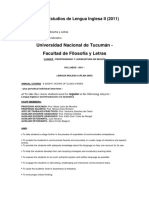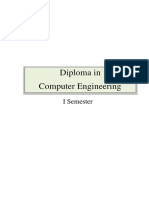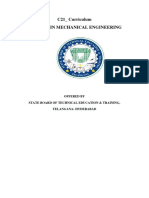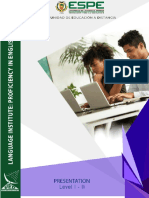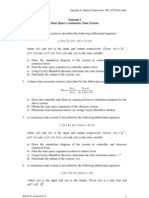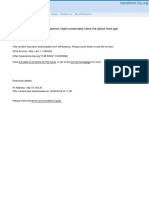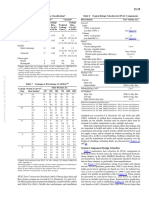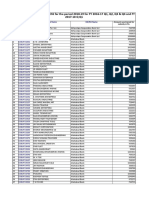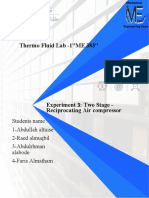Course title: Foreign language I
Basic course information
Academic unit: Department of Balkanistics
Course title:
Level: BA
Course status: Compulsory
Year of study: Year I
Number of hours per week: 2+2
ECTS credits: 6 ECTS
Time/Place According to the schedule |
Course instructor:
Contact details:
Course description: This course will be delivered in line with CEFR
(Common European Framework of Reference for
Languages: Learning, Teaching, Assessment)
requirements, whereby for an elementary level A2
language user competence, topics from everyday life
such as culture, nations, society, customs, news, food,
tradition in different countries, etc., are envisaged.
In this course, both lectures and practical exercises
will be interaction-centered and will rely primarily on
the active participation of students by expressing
their personal opinions and sharing their experiences.
The course aims towards the equal development of
the productive skills of talking and writing and the
receptive skills of listening and reading.
While working at the A2 level, English grammar will
be taught through a mixture of inductive (bottom-up)
and deductive approaches, including an effective
communicative language teaching method.
In order to enhance interest and engagement, students
will also be invited and encouraged to take part in
searching, selecting and creating materials to be used
in the classroom.
Course objectives: This course aims to:
develop students' communication skills;
1
� enhance their grammar skills;
expand their vocabulary with new words;
improve their language comprehension skills
(listening and reading);
enhance their language production skills
(speaking and writing).
VOCABULARY RANGE - to learn enough
vocabulary so as to perform routine everyday
communication involving familiar situations
and topics.
Learning outcomes: Students who attend this course and adhere to
academic rules should become able to use English for
their personal and professional needs. Therefore,
upon successful completion of this course, students
should be able to:
demonstrate intermediate-level knowledge of
English;
become more aware over the correct use of English
grammar;
actively participate in discussions involving familiar
contexts and be able to support their views;
write phrases and sentences where they clearly
communicate their message;
give a broad description of everyday aspects of their
environment (e.g. people, places, a job or study
experience).
Mode of course delivery: Class format consists of 2 hours of lectures and 4 hours of practical
exercises per week. The teaching method will be student-centered and
interactive. Individual and group work will be utilized frequently and in a
consistent manner with the material to be covered.
Students will be required to prepare a class presentation and each class
will begin with a student presentation. During the class, different activities
will take place, such as role play, miming, projects outside the faculty
premises, using online videos for various activities.
Active student participation is encouraged so that they develop their
communication skills. Students will engage in extracurricular activities
aimed at increasing their knowledge on the background of English
language and culture.
2
�Evaluation methods: Student attendance 10%
Participation in discussions 10%
Presentation 10%
Test I -10 %
Test II 10%
Final exam - 50%
Basic literature: 1. English Unlimited – Pre-Intermediate, Coursebook, Cambridge
University Press 2011, UK;
2. English Unlimited – Pre-Intermediate, Self-study Pack, Cambridge
University Press 2011, UK;
Additional literature: 1. OXENDEN, Clive-Latham Koenig Christian, New English File
Intermediate, Oxford University Press, 2005
2. BURT, Angela, The A-Z of Correct English, How to Books
Publishing, Oxford, 2002
Student workload:
Activity Class hours Days/Weeks Total
Lectures 2 (45 min) 15 22.5
Exercise 2 (45 min) 15 22.5
Consultations with the course instructor 15 min 15 3.45
Test, seminar paper 10 2 20
Homework assignments 2 15 20
Self-study (library/home) 2 15 30
Final exam preparation 10 2 30
Assessment time (test, quiz, final exam) 2 2 4
Projects, presentations, etc. 1 1 1
Total 153.45 hours
153.45:25=6.13
6 ECTS
Teaching plan
3
�Week Unit
Week 1: Course description
Discussions on the action plan concerning students’ English language
development
Vocabulary learning techniques
Discussion about presentations
Week 2: Present Simple and Present Continuous
Miming - (active and state verbs)
Here and Now
Description of life events
Weekly glossary
Week 3: Past tense (Past simple, Past cont.)
The expression used to (habit) and would (nostalgia)
Memory and forgetfulness
Heroes
Conjunctions: but, therefore, because, then
Weekly glossary
Week 4: Comparative and superlative forms
Comparison phrases
ENERGY - (Burning calories; extreme weather; It isn’t as cold as)
10 places to visit before we die
Weekly glossary
Week 5: Present Perfect
Nations and cultures
Intercultural experience
Culture shock situations-discussion
CV writing
Weekly glossary
Week 6: Future forms
If and when clauses
First conditional
Consumer review
Weekly glossary
Week 7: -ed/-ing adjectives
Role-play
Weekly news
Write a news story
Weekly glossary
Week 8: Test I
Week 9: Polite requests
Social habits in ...
Outdoor Project-Participation in the Po-e-zë competition
Complete the poem
4
� Weekly glossary
Week 10: Definitive relative clauses
Quantifiers-quantitative expressions
Things you can't live without
Post of the day
Weekly glossary
Week 11: Expression of predictions
Hypothetical possibilities
Baba Vanga and her predictions for 20 ...
Urban world in 2050
Vocabulary race
Week 12: Order of adjectives
Compound nouns
Synonyms and antonyms
Role-play
Cheapskates - Benefit and Consequences
Weekly glossary
Week 13: Post of the day
The most common mistakes in English
Idioms
TED talks (watch/listen, discuss, oppose/agree)
Weekly glossary
Week 14: The most interesting professions
Homonyms
Weekly glossary review
Preparing for the test
Week 15: Test II
Academic policies and code of conduct
The student is required to attend 80% of lectures and tutorial classes. Cell phones / smartphones and other
electronic devices (e.g. iPods) should be turned off (or vibrating) and not exposed during lectures unless
required for certain classroom activity. Other activities, such as checking personal email or browsing
websites, are prohibited.
Students should always bring note-taking materials with them and be prepared for lectures and any
activity; Arriving on time is essential as well as students shouldparticipate actively during lectures
otherwise only physical presence will be assessed as absence. Students are expected to be prepared and
willing to contribute to classroom activities at any time.


























